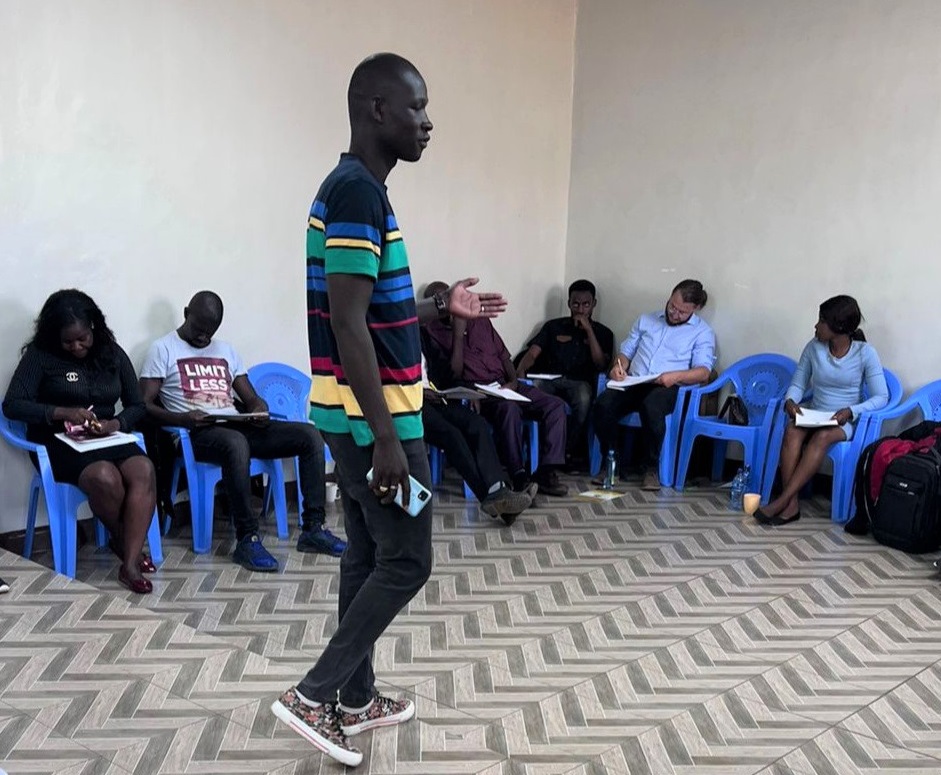In Mathare, Kenya, there is an urgent need to improve access to quality public education, and to regulate private actors providing educational services in the community. These were the conclusions of a consultation with members of the Mathare Community Education Taskforce (Taskforce) convened by the International Commission of Jurists (ICJ), the East African Centre for Human Rights (EACHRights) and the Global Initiative for Economic, Social and Cultural Rights (GI-ESCR).
Participants also considered the merits of strategic litigation aimed at advancing the realization of the right to education, drawing on regional and global experiences.
On 13 February, the Taskforce accompanied representatives of the three organizations on site visits to both public and private schools in Mathare, highlighting the absence of a public school in the Mabatini and Ngei Wards in Mathare.
“Many of the community members themselves appear to be shocked at the deterioration of the education system in Mathare, both in the time-period leading up to the COVID-19 pandemic and thereafter. They have been calling on the authorities to take urgent action for years and express a deep sense of dissatisfaction with the response they have received”, said ICJ Africa Legal and Communications Associate Officer, Mulesa Lumina.
Some of the challenges highlighted by the Taskforce include:
— absence of a sufficient number of public schools in the Mathare area, including, in particular in the Mabatini and Ngei Wards;
— failure by the government to allocate land to construct more public schools;
— ongoing struggles of educators in implementing the “competency-based curriculum” rolled out by the department of education;
— inaccessibility and non-inclusivity of schools for learners with disabilities;
— lack of funding support to existing public schools in Mathare;
— dilapidated infrastructure and inadequate provision of textbooks in public schools;
— poor conditions in many of the private schools in Mathare, the number of which have been increasing; and
— alleged corruption in public administration.
“Public and private schools in Mathare appear to be beset by numerous deficiencies, which have adversely impacted the rights of learners, including learners with disabilities, to access education”, said Wilson Macharia, ICJ Africa’s Associate Legal Adviser.
“The issues raised by the Taskforce reveal that the authorities are not adequately complying with Kenyan law and international legal obligations in terms of the right to education,” he added.
Contact:
Mulesa Lumina, ICJ Africa Legal and Communications Associate Officer, e: mulesa.lumina@icj.org
Wilson Macharia, ICJ Africa Associate Legal Adviser, e: wilson.macharia@icj.org
Background
Participants in the meeting and school visits included members of the Mathare community taskforce, social justice activists, paralegals, lawyers, teachers and other concerned community members. They shared their experiences and concerns about the quality of educational services available to children in Mathare while civil society participants discussed the valuable lessons learned through human rights litigation in Kenya, exploring whether or not this is a viable option for the Mathare community. This engagement follows on from ICJ and EachRights’ workshop on strategic litigation on the right to education held in Nairobi on 9 September 2022.
Article 43(1)(f) of the Kenyan Constitution guarantees the right to education. Article 2 also states that “any treaty or convention ratified by Kenya shall form part of the law of Kenya under this Constitution”. In line with its legal obligations under the treaties to which it is bound, Kenya must ensure that education is available, accessible, adaptable and acceptable. These instruments include the International Covenant on Economic, Social and Cultural Rights, the Convention on the Rights of the Child, the African Charter on the Rights and Welfare of the Child and the African Charter on Human and People’s Rights.
The Abidjan Principles on the human rights obligations of States to provide public education and to regulate private involvement in education clarify the legal standards applicable to private actor participation in education. Members of the Mathare Community Education Taskforce participated in engagements informing the content of the Abidjan Principles.




